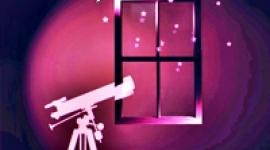What if Medicine Doesn't Help?

What do you do if antidepressants aren't effective in treating your depression?
There are people for who it seems no antidepressant will help, but they are rare, and for those who cannot be treated by antidepressants, it is very likely that electric shock treatment will help. I realize that's a very frightening prospect and it is still controversial, but ECT (or electroconvulsive therapy) is widely regarded by psychiatrists as the safest and most effective treatment there is for the worst depression. Most effective because it works when antidepressants fail, and safest for the simple reason that it works almost immediately, so the patient is not likely to kill themselves while waiting to get better, as can happen while waiting for an antidepressant to yield some relief.
Those who have read such books as Zen and the Art of Motorcycle Maintenance and One Flew Over the Cuckoo's Nest will understandably have low regard for shock treatment. In the past, shock treatment was poorly understood by those who administered it and I have no doubt that it has been abused as depicted in Kesey's book.
Note: While you may have seen the Cuckoo's Nest movie, it's really worthwhile to read the book. The inner experience of the patients comes through in the novel in a way that I don't think is possible in a motion picture.
It has since been found that the memory loss that Robert Pirsig describes in Zen and the Art of Motorcycle Maintenance can be largely avoided by shocking only one lobe of the brain at a time, rather than both simultaneously. I understand the untreated lobe retains its memory and can help the other one recover it.
A new procedure called Transcranial Magnetic Stimulation promises a vast improvement over traditional ECT by using pulsed magnetic fields to induce currents inside the brain. A drawback for ECT is that the skull is an effective insulator, so high voltages are required to penetrate it. ECT cannot be applied with much precision. The skull presents no barrier to magnetic fields, so TMS can be delicately and precisely controlled.
At the hospital back in '85, I had the pleasure to meet a fellow patient who had once worked as a staff member at another psychiatric hospital sometime before. He would give us the inside scoop on everything that was going on during our stay. In particular, he had once assisted in giving ECT treatments and said that, at the time, it was just starting to be understood how many times you could shock someone before, as he put it, "they wouldn't come back". He said you could safely treat someone eleven times.
(It actually seems to be common for those who have a mental illness to work at psychiatric hospitals. The Quiet Room author Lori Schiller worked at one for a while and even now teaches a class at one. A bipolar friend worked at Harbor Hills hospital in Santa Cruz when I knew him back in the mid-'80s. At her first job, Schiller managed to keep her illness a secret for some time until another staffer noticed her hands shaking. That's a common side effect of many psychiatric medications, and in fact, sometimes I take a drug called propranolol to stop the tremors I get from Depakote, which got so bad at one point that I couldn't type on a computer keyboard.)
You're probably wondering whether I have ever had ECT. I haven't; antidepressants work well for me. Although I feel it is probably safe and effective, I would be very reluctant to have it, for the simple reason that I place such a high value on my intellect. I would have to be pretty convinced that I would be as smart afterward as I am now before I would volunteer for shock treatment. I would have to know a lot more about it than I do now.
I've known several other people to have ECT, and it seemed to help them. A couple of them were fellow patients who were getting the treatment while we were in the hospital together, and the difference in their whole personalities from one day to the next was profoundly positive.
APA Reference
Staff, H.
(2007, March 6). What if Medicine Doesn't Help?, HealthyPlace. Retrieved
on 2025, April 24 from https://www.healthyplace.com/thought-disorders/living-with-schizoaffective-disorder/what-if-medicine-doesnt-help



